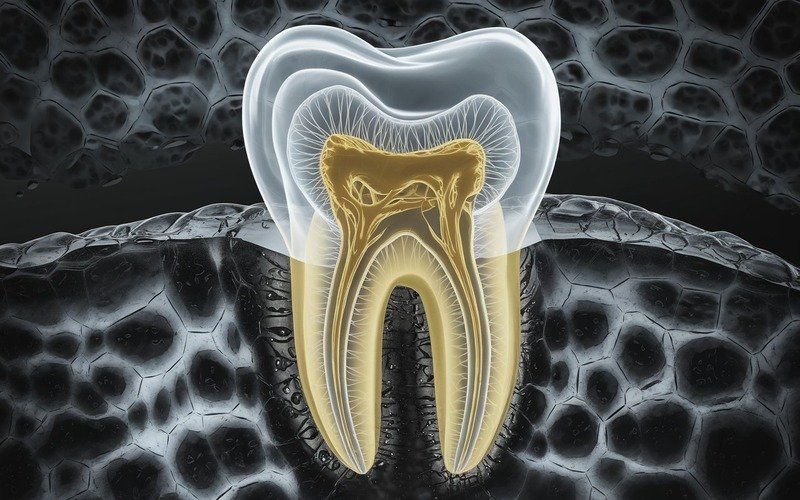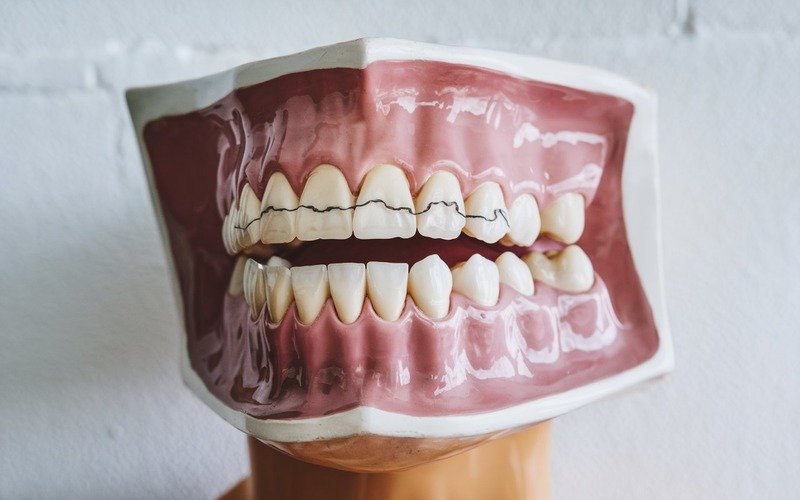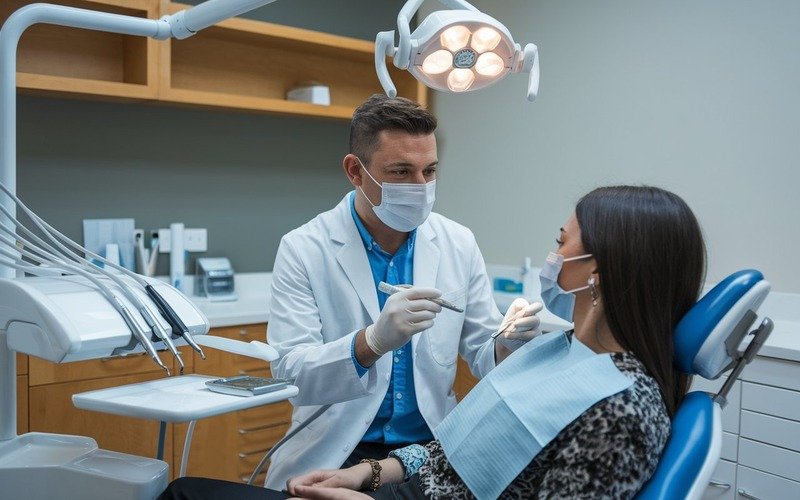Sleep apnea is a serious sleep disorder that affects millions of people worldwide. It occurs when a person’s breathing is interrupted during sleep, leading to poor sleep quality and a range of health issues. While many people are aware of the general health risks associated with sleep apnea, such as heart disease and high blood pressure, fewer are aware of its impact on oral health. At our dental clinic in Houston TX, we emphasize the importance of understanding the connection between sleep apnea and oral health, as it can significantly influence your overall well-being.
What is Sleep Apnea?
Sleep apnea is characterized by repeated interruptions in breathing during sleep. These interruptions can last for a few seconds to a minute and can occur multiple times throughout the night. The most common type of sleep apnea is obstructive sleep apnea (OSA), which occurs when the muscles in the throat relax excessively during sleep, causing a blockage of the airway.
Types of Sleep Apnea
- Obstructive Sleep Apnea (OSA): The most common form, OSA is caused by the relaxation of throat muscles, which leads to a physical blockage of the airway.
- Central Sleep Apnea (CSA): This less common type occurs when the brain fails to send proper signals to the muscles that control breathing.
- Complex Sleep Apnea Syndrome: Also known as treatment-emergent central sleep apnea, this is a combination of OSA and CSA.
If left untreated, sleep apnea can lead to severe health problems, including cardiovascular disease, stroke, diabetes, and even death. However, the condition’s impact on oral health is often overlooked.
How Sleep Apnea Affects Oral Health
The link between sleep apnea and oral health is significant and multifaceted. At our dental clinic in Houston TX, we have identified several ways in which sleep apnea can directly and indirectly affect the health of your teeth and gums.
1. Bruxism (Teeth Grinding)
One of the most common oral health issues associated with sleep apnea is bruxism, or teeth grinding. Studies have shown that many individuals with sleep apnea also suffer from bruxism. The exact connection is not entirely understood, but it is believed that the body’s response to interrupted breathing episodes triggers teeth grinding as a reflex to reopen the airway.
Impact of Bruxism on Oral Health:
- Tooth Wear: Chronic grinding can lead to significant wear and tear on the teeth, resulting in flattened, chipped, or even fractured teeth.
- Jaw Pain: Bruxism can cause pain and discomfort in the jaw, leading to temporomandibular joint (TMJ) disorders.
- Tooth Sensitivity: As the enamel wears down, the underlying dentin becomes exposed, leading to increased tooth sensitivity.
- Gum Recession: The excessive force exerted during grinding can cause the gums to recede, increasing the risk of gum disease.
At our dental office in Houston TX, we often see patients with sleep apnea who present with signs of bruxism. Addressing both conditions simultaneously is crucial to protect your oral health.
2. Dry Mouth (Xerostomia)
Dry mouth, or xerostomia, is another common issue for those with sleep apnea. When the airway is blocked during sleep, individuals often resort to mouth breathing, which dries out the oral tissues. Saliva plays a critical role in maintaining oral health by neutralizing acids, washing away food particles, and preventing bacterial growth. Without adequate saliva, the risk of oral health problems increases.
Impact of Dry Mouth on Oral Health:
- Increased Risk of Cavities: Saliva helps neutralize acids produced by bacteria in the mouth. A lack of saliva can lead to an increase in cavity-causing bacteria.
- Bad Breath: The lack of saliva can also lead to halitosis (bad breath), as bacteria thrive in dry conditions.
- Gum Disease: Dry mouth can contribute to the development of gum disease, as bacteria are not adequately removed from the gums and teeth.
At our dental clinic in Houston TX, we recommend patients with sleep apnea to monitor their oral health closely, especially if they experience dry mouth symptoms. We may suggest using saliva substitutes, drinking more water, or employing other methods to increase saliva production.
3. Periodontal Disease
Periodontal (gum) disease is a serious infection of the gums that can lead to tooth loss if left untreated. There is a growing body of evidence suggesting a link between sleep apnea and an increased risk of periodontal disease. The exact mechanism is not fully understood, but it is believed that the systemic inflammation associated with sleep apnea contributes to the development of gum disease.
Impact of Periodontal Disease on Oral Health:
- Gum Inflammation: Sleep apnea-induced inflammation can exacerbate gum inflammation, leading to gingivitis, the early stage of gum disease.
- Bone Loss: If periodontal disease progresses, it can result in the loss of bone that supports the teeth, leading to loose teeth or tooth loss.
- Systemic Health Risks: Periodontal disease has been linked to other systemic health issues, including heart disease and diabetes, both of which are also associated with sleep apnea.
At our dental office in Houston TX, we emphasize the importance of regular dental check-ups for patients with sleep apnea, as early detection and treatment of periodontal disease are essential for maintaining oral and overall health.
4. TMJ Disorders
Temporomandibular joint (TMJ) disorders are conditions that affect the jaw joint and muscles that control jaw movement. Sleep apnea has been linked to TMJ disorders due to the strain placed on the jaw during episodes of interrupted breathing and teeth grinding.
Impact of TMJ Disorders on Oral Health:
- Jaw Pain and Dysfunction: TMJ disorders can cause pain, discomfort, and difficulty in opening or closing the mouth.
- Tooth Damage: The excessive force from teeth grinding associated with TMJ disorders can lead to tooth damage and wear.
- Headaches: TMJ disorders often cause tension headaches and migraines, which can affect your quality of life.
At our dental clinic in Houston TX, we offer TMJ therapy as part of our comprehensive approach to treating patients with sleep apnea. By addressing both the sleep disorder and the TMJ issues, we can help alleviate symptoms and improve your overall well-being.
5. Increased Risk of Oral Cancer
Research has shown that individuals with sleep apnea may be at an increased risk of developing oral cancer. The chronic inflammation and oxidative stress associated with sleep apnea are believed to contribute to the development of cancerous cells in the oral cavity.
Impact of Oral Cancer on Oral Health:
- Lesions and Ulcers: Oral cancer often presents as sores, lesions, or ulcers in the mouth that do not heal.
- Difficulty Swallowing and Speaking: As oral cancer progresses, it can cause difficulty in swallowing and speaking, impacting your quality of life.
- Tooth Loss: In advanced cases, oral cancer may necessitate the removal of affected teeth.
At our dental office in Houston TX, we conduct regular oral cancer screenings as part of our routine dental exams, especially for patients with sleep apnea. Early detection is key to successful treatment and improved outcomes.
How Dentists Can Help with Sleep Apnea
Dentists play a crucial role in the diagnosis and treatment of sleep apnea. At our dental clinic in Houston TX, we offer a range of services designed to help patients manage their sleep apnea and maintain their oral health.
1. Oral Appliance Therapy
Oral appliance therapy involves the use of a custom-made oral device that is worn during sleep to help keep the airway open. This device, often referred to as a mandibular advancement device (MAD), works by gently repositioning the lower jaw forward, preventing the collapse of the airway.
Benefits of Oral Appliance Therapy:
- Non-Invasive: Oral appliances are a non-invasive alternative to continuous positive airway pressure (CPAP) therapy.
- Comfortable and Convenient: The custom-fit devices are comfortable to wear and easy to travel with.
- Effective: For many patients, oral appliance therapy is effective in reducing or eliminating sleep apnea symptoms.
At our dental office in Houston TX, we custom-fit oral appliances for patients with sleep apnea, ensuring optimal comfort and effectiveness.
2. Collaborative Care
Managing sleep apnea often requires a multidisciplinary approach, involving collaboration between dentists, sleep specialists, and primary care physicians. At our dental clinic in Houston TX, we work closely with other healthcare providers to ensure a comprehensive approach to your care.
Collaborative Care Involves:
- Diagnosis: We may refer you to a sleep specialist for a sleep study to confirm a diagnosis of sleep apnea.
- Treatment Planning: We collaborate with your healthcare team to develop a personalized treatment plan that addresses both your sleep apnea and oral health needs.
- Ongoing Monitoring: Regular check-ups allow us to monitor your progress and make any necessary adjustments to your treatment.
3. Regular Dental Check-Ups
Regular dental check-ups are essential for patients with sleep apnea. These visits allow us to monitor the health of your teeth and gums, check for signs of bruxism, dry mouth, periodontal disease, and oral cancer, and provide preventive care to protect your oral health.
At our dental clinic in Houston TX, we recommend that patients with sleep apnea schedule dental check-ups every six months, or more frequently if needed, to ensure that their oral health is maintained.
Conclusion: Protecting Your Oral Health with the Help of Our Dental Clinic in Houston TX
Sleep apnea is a serious condition that can have a profound impact on your overall health, including your oral health. Understanding the connection between sleep apnea and oral health is essential for managing the condition and preventing complications. At our dental clinic in Houston TX, we are committed to helping our patients with sleep apnea maintain healthy teeth and gums through comprehensive care and personalized treatment plans.
Whether you need oral appliance therapy, TMJ treatment, or regular dental check-ups, our experienced team at our dental office in Houston TX is here to support you every step of the way. If you suspect that you have sleep apnea or are experiencing any of the oral health issues associated with the condition, we encourage you to schedule a consultation with our dentist in Houston TX today.
Contact our dental clinic in Houston TX to learn more about how we can help you manage your sleep apnea and protect your oral health. We look forward to being a part of your journey to better health and a brighter smile.



